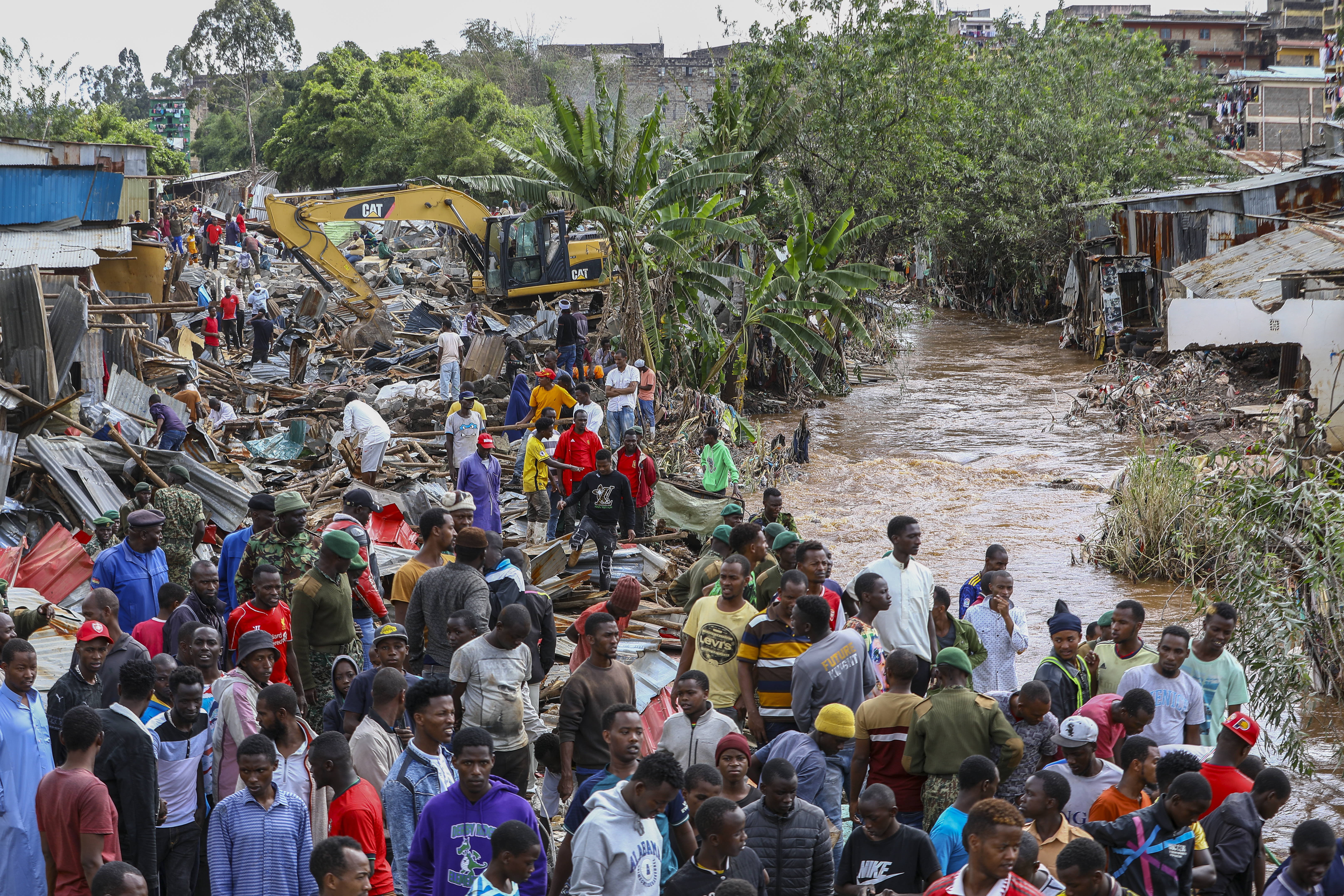For decades, there have been warnings that Africa, the world’s poorest continent, was the most vulnerable to climate change caused mostly by the burning of fossil fuels up north.
Those forecasts are now a grim reality, a point starkly underscored in the World Meteorological Organization’s (WMO’s) just released State of the Climate in Africa 2024 report.
The past decade has been the warmest on record globally and Africa has been no exception, with a trail of misery from drought to deluge left in its wake.
“Extreme weather and climate change impacts are hitting every single aspect of socioeconomic development in Africa and exacerbating hunger, insecurity and displacement,” the WMO said.
 Big waves break against the Sea Point Promenade in Cape Town on 12 July 2022. (Photo: Gallo Images / Die Burger / Jaco Marais)
Big waves break against the Sea Point Promenade in Cape Town on 12 July 2022. (Photo: Gallo Images / Die Burger / Jaco Marais)
“The year 2024 was the warmest or second-warmest year, depending on the dataset ... Sea-surface temperatures around the continent were at record levels, with particularly rapid warming in the Atlantic Ocean and the Mediterranean Sea. Marine heatwaves impacted the biggest area since measurements started in 1993.”
The sea-surface temperature spike was from January to April and covered an area of nearly 30 million square kilometres. This state of affairs makes tropical storms more intense and devastating.
“For the first time in the satellite era, two tropical cyclones, Hidaya and Ialy, developed in May and moved over the far north-western part of the basin near Tanzania and Kenya over a region rarely frequented by mature tropical systems,” the WMO said.
Surging sea-surface temperatures will also have consequences for marine life, coral reefs, commercial and subsistence fisheries and eco-tourism industries, which are vital to coastal African economies.
This correspondent observed coral bleaching while scuba diving on reefs at Sodwana in northern KZN in March – the first time I had seen that blight in the more than 25 years I have been diving there. If you spend time outdoors, you can’t help but notice this stuff.
Subsistence African farmers who rely on rain-fed agriculture are certainly taking note, with last year’s scorching El Niño event a case in point.
“The aggregate cereal yields in southern Africa were 16% below the five-year average – and in the case of Zambia and Zimbabwe, 43% and 50%, respectively,” the WMO said.
Then there was the ripple effect on the wider regional economy from dam levels. Water literally evaporated under a blazing sky.
“Low water levels and low hydropower output from Lake Kariba, Africa’s largest man-made reservoir, caused prolonged power outages and economic disruption,” the WMO said.
Elsewhere on the continent, the problem was too much rain. Severe floods washed over Kenya, Tanzania and Burundi from March to May last year, killing hundreds of people and directly impacting 700,000. This was followed by below-average rain from October to December, raising concerns about food security.
West Africa endured floods that affected more than four million people, with hundreds of thousands displaced by the drenching.
The cycle is truly becoming increasingly vicious – floods followed by drought or vice versa – the signature events of extreme weather being inflicted on populations that are least equipped to deal with disasters that are biblical in scale.
What this means for you
These trends could exacerbate already existing water shortages in your hood and will push up the prices of many things grown in Africa that you take for granted – coffee, cocoa and vanilla, among other products. And depending on where you live, you will find your home at increasing risk of being hit by floods or scorched by wildfires.
However, the WMO report is not just a litany of woe.
“Many countries in Africa are embracing digital transformation to improve weather forecasts and early warnings and this has been identified as a regional priority. Artificial intelligence brings new potential to strengthen service delivery,” it notes.
The bottom line here is that Africa is getting whacked by climate change mostly linked to global greenhouse gas emissions despite only accounting for around 4% of such emissions – and the biggest emitters on the continent by a country mile are South African, namely Eskom and Sasol.
These, it must be said, are well-known facts among those who keep track of such trends.
But these trends have consequences. And at this rate, things will only get worse before they hopefully get better. The apocalypse is not in the future – it is unfolding in the present, and history has a long memory. DM
https://www.youtube.com/watch?v=REeWvTRUpMk




 Big waves break against the Sea Point Promenade in Cape Town on 12 July 2022. (Photo: Gallo Images / Die Burger / Jaco Marais)
Big waves break against the Sea Point Promenade in Cape Town on 12 July 2022. (Photo: Gallo Images / Die Burger / Jaco Marais) 